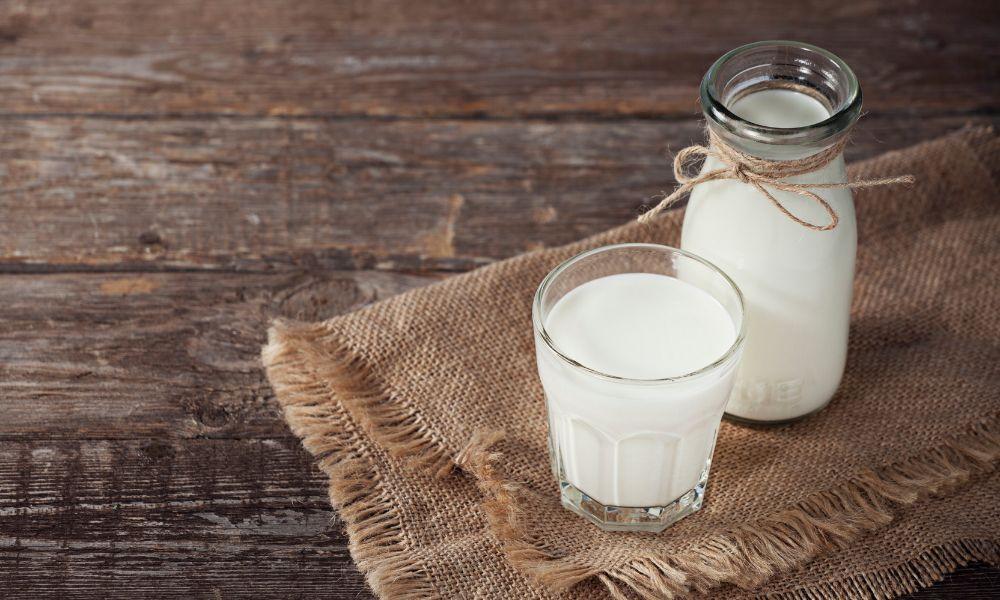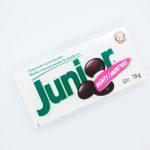Picture this: you’ve returned home after a long day, only to find that you left a carton of milk on the kitchen counter. Panic sets in as you question its freshness and whether it’s safe to consume.
It’s time to demystify this conundrum! In this article, we’ll answer the pressing question “How long can milk stay unrefrigerated?”, explore factors that contribute to milk spoilage, and share expert advice to manage milk storage in various situations.

Factors Affecting Milk Spoilage
There are several factors that contribute to milk spoilage, with bacteria playing the leading role. These microscopic creatures find milk to be a delightful buffet, but factors such as temperature, light, and oxygen can significantly impact their growth.
1. Role of Bacteria and Temperature
Delectable as it might be for humans, milk is also quite attractive to bacteria. Bacterial growth is, in fact, the primary cause of spoilage. What’s more, these microscopic organisms thrive at room temperature, swiftly multiplying and ruining our milk supply. Therefore, keeping milk cold in a refrigerator helps to slow down bacterial growth and extends its shelf life.
2. Light Exposure
Dramatic as it may sound, even milk has a sensitive side. It turns out that exposure to light – be it natural or artificial – can cause it to spoil faster by breaking down vital components like vitamins and proteins. This process, known as light-induced oxidation, is another reason why milk cartons are often opaque to minimize light exposure.
3. Oxygen and Airflow
Milk doesn’t like to be exposed to air for too long either. Oxygen plays the villain here, as its presence facilitates bacterial growth and therefore accelerates spoilage. That’s exactly why milk containers come with airtight seals, ensuring that our precious beverages remain fresh and safe to drink for as long as possible.
4. Milk’s Fat Content and Additives
Believe it or not, the fat content in milk can affect its shelf life. Generally speaking, the higher the fat content, the quicker milk spoils. Additives like sugar, flavors, or preservatives may also impact the rate of spoilage. Now that we know what impacts milk’s freshness, let’s explore how long different types of unrefrigerated milk can stay fresh.
How Long Can Unrefrigerated Milk Stay Fresh?
Before diving into the timeline for milk’s freshness, it’s essential to remember one key point – the figures we are about to share are approximate. Ultimately, variations in temperature, packaging, and milk type (whole, skim, etc.) can affect the actual spoilage rate. With that said, here’s a handy table that outlines the estimated shelf life of unrefrigerated milk.
| Milk Type | Approximate Shelf Life (Unopened) | Approximate Shelf Life (Opened) |
|---|---|---|
| Whole milk | 6-8 hours | 4-6 hours |
| Skim milk | 8-10 hours | 6-8 hours |
| Ultra-Pasteurized (UHT) milk | 2-3 weeks | 7-10 days |
| Almond milk | 2-4 weeks | 7-10 days |
| Soy milk | 2-4 weeks | 7-10 days |
1. Room Temperature Matters
It should come as no surprise that milk’s freshness is greatly affected by the temperature. Higher temperatures accelerate bacterial growth, leading to a quicker spoilage time. The approximate freshness timeline for each milk type can adjust when exposed to fluctuating temperatures, so always be mindful of your environment when storing milk.
2. The Package Deal
Milk packaging plays a significant role in determining spoilage rates. Take ultra-pasteurized milk (UHT), for example. Its unique packaging and processing provide a significantly longer shelf life than milk packed the traditional way. Therefore, it’s crucial to consider the type of packaging when calculating milk’s expiration date.
3. Whole Milk vs. Skim Milk
As mentioned earlier, milk’s fat content affects how quickly it spoils. Whole milk, with its higher fat content, tends to spoil faster than skim milk which has a reduced fat percentage. Experimenting with various kinds of milk can help you find the perfect balance of taste and freshness for your specific needs. Discover our Nestle fresh milk experiment(opens in a new tab) to see how different milk types fare in real-life scenarios!
Signs of Spoiled Milk

Now that we know how long unrefrigerated milk can stay fresh, identifying spoiled milk is the next priority. Of course, we don’t want to risk consuming spoiled milk, as it can make us ill. So, how can we determine if our milk is past its prime? There are visual, olfactory, and taste indicators to consider.
1. Looks Matter
The visual appearance of milk can speak volumes about its freshness. If you notice your milk appears to be lumpy, thickened, or separated, it’s time to bid it farewell.
2. Follow Your Nose
Our sense of smell is a powerful tool for detecting spoiled milk. A classic “sniff test” can instantly indicate whether your milk has gone bad, with sour or off smells proving quite telling.
3. Trust Your Taste Buds
If, and only if, the visual and olfactory cues prove inconclusive, consider taste-testing a small sample of the milk. Naturally, you’d want to spit out any milk that tastes sour, bitter, or off.
Remember, though, that the cardinal rule before consuming any milk is to rely on your senses first.
Tips for Safe Milk Storage
With a clear understanding of how long unrefrigerated milk can stay fresh and the signs of spoilage, we now turn our attention to safe milk storage practices. Following these guidelines can help you keep your milk’s freshness intact for as long as possible.
1. Keep it Cool
Whenever possible, store milk at a cool constant temperature. During power outages or travels, this becomes even more essential. Consider storing milk in the coolest area of your home, or use a cooling bag or insulated container to better maintain its freshness.
2. Avoid Direct Sunlight
As we now know, light exposure can accelerate milk spoilage. Make it a point to keep your milk away from direct sunlight, whether it be on your kitchen counter or in your car during a road trip.
3. Seal it Tight
Air is not milk’s best friend. Ensure that after opening your milk, you reseal it in an airtight manner. Doing this helps minimize air exposure and alienate any unwanted bacteria looking to feast on your milk.
4. Embrace Milk Alternatives
For longer storage needs, consider milk alternatives. UHT milk, almond milk, or soy milk, which have longer shelf lives, can be used without the constant worry of rapid spoilage. Especially useful for road trips and camping vacations!
With these expert storage tips, maintaining milk’s freshness has never been easier. Now let’s address some frequently asked questions regarding unrefrigerated milk.
FAQs
Can you drink milk that has been left out overnight?
If you accidentally left milk out overnight, use your senses to determine if it has gone bad. Perform a visual inspection, the sniff test, and if needed, taste a small sample. If you sense any off characteristics, discard the milk.
How does the duration of milk’s freshness vary based on its fat content?
Typically, whole milk with its higher fat content spoils quicker than skim milk with lower fat percentages. Always consider fat content when estimating milk’s shelf life.
Can unrefrigerated milk be used in cooking and baking?
If the unrefrigerated milk is still fresh, it can be used in cooking and baking. Be sure to check the milk for signs of spoilage before utilizing it in any recipes.
Is it safe to consume milk that has been left unrefrigerated for a few hours?
Milk that has only been left unrefrigerated for a few hours is generally safe to consume. However, be sure to assess its freshness through sensory evaluation methods described earlier before consuming it.
Can spoiled milk make you sick?
Yes, consuming spoiled milk can make you sick. Spoiled milk may contain harmful bacteria that can cause foodborne illnesses like food poisoning. Always check milk for freshness before consuming it.
Conclusion
Congratulations on becoming a milk freshness guru! Equipped with the knowledge you’ve gained from this article, you can now tackle unexpected power outages, camping trips, or road adventures with ease. Keep these tips in mind and be confident that your dairy delights will retain their freshness even when unrefrigerated. Cheers to delicious milk and a healthy, well-informed lifestyle!








